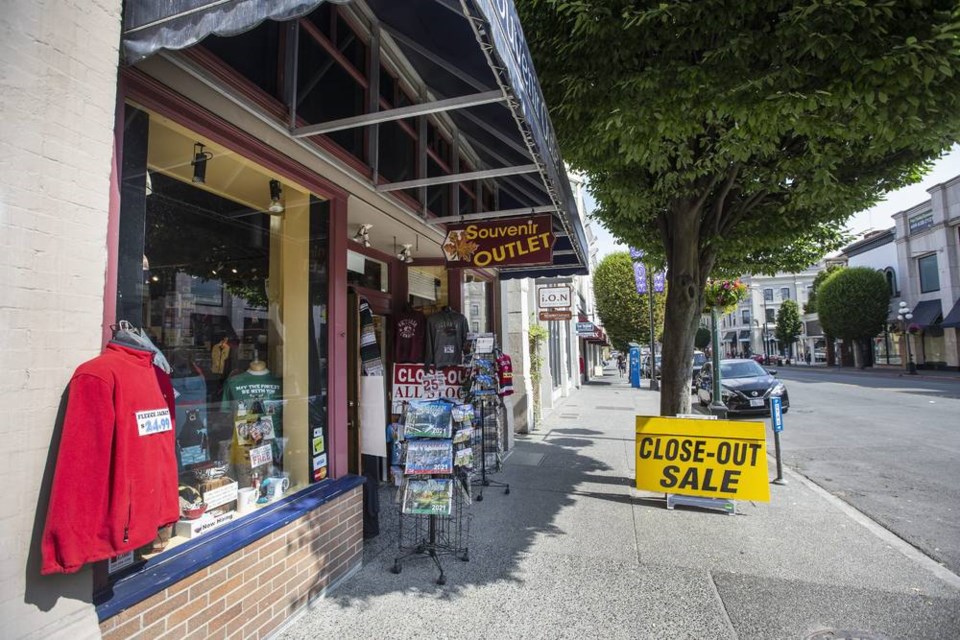Black Friday doesn’t make sense in Canada. It’s timed to come the day after a U.S. holiday, American Thanksgiving, that we don’t celebrate.
That means that while Americans who want to take advantage of Black Friday bargains can do so as part of a super-long weekend, Canadians have to channel their inner Ferris Bueller and call in sick.
Or, at least, they had to. Past tense. There’s no need to fake an illness when working from home, and no need to leave that home when anything you want to buy is just a computer click away. Online shopping is a godsend for those who are A) anti-social, B) time-impoverished, C) too lazy to pull on their good sweatpants, the ones they wear in public, or D) worried about being coughed on in the mall.
The question is: when you shop online, from whom do you make your purchases? From the local store that pays local taxes and employs your neighbours, who also pay taxes and contribute to the local economy, or do you just thrust your cash straight into Jeff Bezos’s welcoming arms?
Given the growing number of empty storefronts, and the fact that pandemic purchases on Amazon have made Bezos the first person on Earth to be worth more than $200 billion US, odds are that you have opted to help him buy another $65-million Gulfstream jet.
This is backed up by Deloitte and Touche’s Holiday Retail Outlook, which said the pandemic has shifted the way we shop.“Canadian consumers love Amazon,” it concluded. “For many, it’s where the shopping journey begins — and ends. With just 53 per cent of consumers likely to head to stores to research and buy holiday gifts and other items this year (down from 69 per cent in 2019), Amazon has dethroned the store as the kickoff point for Canadians’ shopping journey.”
The reasons for buying via outfits such as Amazon are obvious. You can buy goods that aren’t readily available in the local mom-and-pop shops. The savings can be too good to pass up. Fair enough.
The problem is that, at some point, we are going to save so much that we go broke. Draining money out of the local economy costs us jobs (one in five B.C. workers is in retail) and the taxes that pay for parks, pools, police and so on.
An example: the city of Victoria derives half its property-tax revenue from the commercial sector. Currently, the owner of a house assessed at $815,000 pays $3,520 in property taxes, sewer, water and garbage fees.
The owner of a typical small business assessed at $683,000 pays $8,091. What will happen to residential taxes when those businesses go dark?
Then there’s the loss of the corporate and individual taxes that help pay for everything from B.C.’s $21-billion-a-year health-care system to the $96-million McKenzie Interchange, to the $200 million in provincial grants that comprise half of the University of Victoria’s annual operating budget.
Don’t forget the less- quantifiable ways in which small business knits the community together. The offshore outfit that sold you your kid’s soccer gear doesn’t donate to her team’s silent auction. The charity-event T-shirt in your closet says Frontrunners on the back, not Amazon.
When the ban on large gatherings cancelled this year’s staff Christmas party, Capital Iron hired a hard-hit local caterer to provide employees with a take-home meal instead. Do you see a multinational doing that?
The Greater Victoria Chamber of Commerce is in the middle of launching a social-media initiative that encourages area businesses to complete the sentence “We’re local because …” The idea is to emphasize what they contribute to the economy and to the quality of life.
Chamber CEO Bruce Williams is also encouraging consumers to think of what it means to shop locally. “People don’t seem to have a real grasp on what local really means.”
A big-box chain that hires local workers and pays local taxes is preferable to a company that does all its transactions over the horizon, he says, but a locally owned business, one that keep its profits in the community, is better. One that sells locally made products is better still.
And yes, you can order those local products online and have them delivered by a local retailer. Most bricks-and-mortar stores also have a digital presence and will deliver to your door.
The thing is, it’s hard to make the indirect connection to teetering mom-and-pops, property taxes, silent auctions and UVic tuition fees when the online goliaths are dangling 12 bucks off that Christmas gift today. Black Friday indeed.



